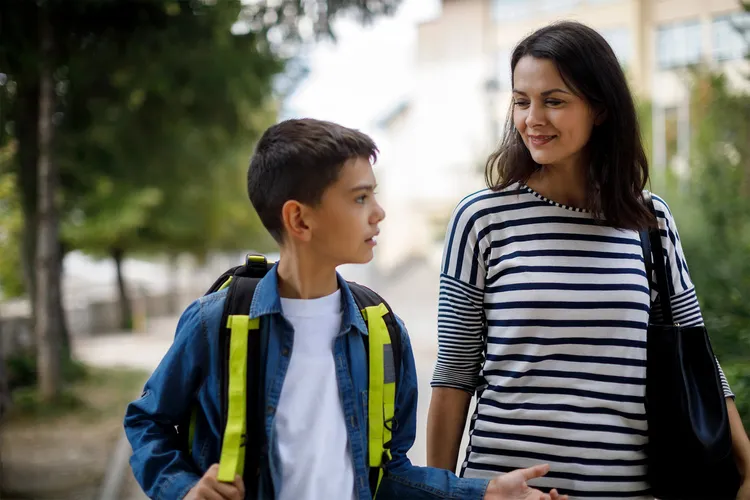It’s not unusual to have mixed feelings about your child’s diagnosis of ADHD (attention deficit hyperactivity disorder). The behaviors that lead to it may cause stress in your family and social life for a long time. You may worry that your child (and others) will react to being “labeled” on top of all your other challenges. Don’t let this stop you from talking to your child. Discovering together how your child’s brain works can be the first step to improving their symptoms.
Jane McKay learned that her son, James, had ADHD when he was 6 years old. “[It] There was a little relief, because we felt that it explained some of the things we were seeing,” she says. She also hoped that the diagnosis meant they would be able to find the right tools to help James. “He was a constant ‘behavior problem’ in his preschool and transitional kindergarten classes, which was very frustrating for him. In fact, we decided to pull him out of public kindergarten because I didn’t want him to Thinking he was bad. In retrospect, I wish we were [able] To diagnose him and start his ADHD treatment earlier.
That way, finding out your child has ADHD is a good thing, and you can help explain it by focusing on the positive.
Knowledge is power
Many times, ADHD runs in families. This means that your child didn’t do anything to cause it – and neither did you. On the other hand, now that you know what you’re dealing with, you can both do things to help your child be more successful.
“We’ve come to the point that he’s at an advantage knowing the things he needs to work on and everyone can get better with time and practice,” Mackey says. “He had a good heart and loved all his friends. When they were upset, it was confusing because he was so impulsive and would do things that would upset his friends or disobey his teacher. We talked about how realizing that certain things will be difficult (like personal space and remembering homework) can be an advantage, because you can make a conscious effort to learn and improve.
If medication is part of your child’s treatment plan, you can explain that you are trying a new pill that might help them focus and feel calmer. You can tell them how medication can make it easier to achieve some of these goals. today, “[James] He can clearly tell the difference when he’s forgotten his meds and prefers the way he feels when he’s on them,” says Mackey. “When the school went remote, this psychologist asked to talk to and request a meds adjustment. I think this shows that he understands the diagnosis and what helps him and has come to peace with it.
Everyone has strengths and challenges
Children with ADHD often face criticism for their behavior in and out of school. So, it’s important to balance it with plenty of praise when they do things you’d like to see more of. Mark it when your child finishes homework on time or cleans his plate without being asked.
“Like [James has] Growing up, we talk a lot about how everyone has things they’re really good at and struggles with those things,” says her mother. “We talk about overcoming our struggles and Just talk about learning and moving forward and improving — and we talk about combining our strengths.”
Find out what your child is good at — whether it’s computer coding or finger painting or knowing the detailed backstory of each superhero from their favorite universe — and create opportunities for them to practice it. Do it and get success. Don’t use the activity as a reward or treat it as a punishment. Your relationship with your child is more important than perfect behavior.
There is always more to learn
As you ask your child to work on the skills that need improvement, be prepared to do the same yourself. Learn all you can about ADHD as well as how it affects your individual child, because each person’s condition is different. You can do this by making sure your child gets a thorough evaluation with input from their doctor, therapist, and teacher. Training with an ADHD parent coach can help you learn specific parenting strategies and techniques to use at home that are likely to lead to better behavior.
For example, consistent routines and rewards for certain behaviors can help children with ADHD know what to do and remember to do it. “I’m very consistent with James, making sure every morning, like clockwork, he eats his apple and yogurt and takes his medicine (in a pill box for the week),” says McKay. “Another hack is ‘Showtime’ every day at 5pm. We limit screen time at home but maybe not as much; Instead we use the 5 o’clock clock [of screen time] As an incentive to finish after-school responsibilities. I use that quiet time to make a healthy dinner that we eat together as a family. Even though he is a teenager now, I still give him a lot of motivation to get things done that need to be done.
Diagnosing your child with ADHD means that you both now have a way to go to start improving things. When you have information to work with your child’s mindset instead of against it, everyone can be happy and see the diagnosis as a good thing.
